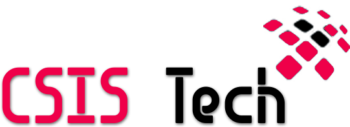What is a CASB (Cloud Access Security Broker)?

The rise of cloud computing is one of the big stories of the 2010s. It’s the driving force that has made remote working from a pipe-dream into a reality. By this time next year, over 83% of enterprise workloads will be in the cloud.
But, if the story of the 2010s was the onward advance of the cloud, the story of the 2020s will be the story of how the cloud was made safe and secure. We often hear how the rise of the cloud poses many new cybersecurity challenges to IT professionals trying to ensure data privacy and software security across vast infrastructures.

In truth, like any major technological breakthrough, cloud computing has created an array of security solutions, which means many of the major service providers are very secure. Indeed, the biggest likely threat in years to come will be customer security failings rather than inherent flaws within the cloud.
What’s the definition of a CASB?
A Cloud Access Security Broker (CASB) is a software tool or service that mediates the relationship between a company’s centralized on-site IT apparatus and the cloud service provider’s infrastructure. A CASB is a kind of virtual gatekeeper that helps regulate the flow of data, information and files across these different parts of the network.
What do CASBs do?
CASBs use various protocol in order to identify and isolate major organizational threats, incorporating firewalls to identify malware at a network and application level, data loss protection to limit the transmission of sensitive data beyond the network, and authentication processes to make sure nobody’s accessing anything they shouldn’t be.
By creating secure protocol to manage the flow of information across the network, CASBs prevent against a range of security threats: from rogue insiders to malware data exfiltration. This means they help to reduce the likelihood of compliance breaches such as consumer data loss or breach of contract.
In addition to this, CASBs can also supplement existing protective procedures, integrating with your Single Sign-On, encryption, compliance reporting tools and user analytics to beef up your network security.
Do I need a CASB?
As applications incorporate the enhanced functionalities facilitated by cloud computing, they also make organizations more vulnerable to cybersecurity threats.
In short, as workers move away from the relative security of in-house IT networks and businesses migrate to the cloud, a CASB is the most popular, scalable and affordable security solution for securing your systems. While only a small proportion of SMEs are using these at the moment, expect deployment to rise big time over the next decade.
Which CASB should I purchase?
There are many options out there, and the CASB you choose will be largely determined by the size of your organization. Some of these options will also offer regulatory compliance tools, a great selling point for any companies handling sensitive financial or health data in their day-to-day running.
Some of the top brands in this area at the moment are:
- McAfee MVISION Cloud
- Microsoft Cloud App Security
- Forcepoint CASB
- Cisco Cloudlock
- Bitglass Cloud
- Symantec
- Proofpoint













